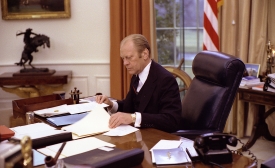international broadcasting
Cultural diplomacy is also an essential tool for challenging claims of ‘cultural superiority’ by celebrating human differences and recognizing other cultures and values [...] It is toward this perception of culture that Qatar's diplomatic energies have been redirected over the past decade.
In this episode of Science in the Golden Age, theoretical physicist Jim al-Khalili guides us through a journey of discovery where he highlights the links between medical research in the Golden Age of Science during the ninth and 14th centuries and the modern practise of medicine today.
Last week it came to light that Beijing’s state-run China Radio International secretly owns 60% of a U.S. company, G&E Studio, which leases stations and airtime in Washington, Philadelphia, Boston and San Francisco, among other cities. Beijing uses similar subterfuges in Europe and Australia.
Revelations that the Chinese government secretly controls a network of overseas radio stations are a further indicator that Beijing is actively taking its propaganda to a global audience[...] The report, which has sparked calls for a federal investigation, emerges as President Xi Jinping's administration expands its deployment of "soft power," a form of influence that goes well beyond the business of government, analysts said.
Like most government-funded broadcasters, VOA is facing an uncertain future because of factors that are outside its control, such as budget constraints and censorship by anti-democratic leaders in countries like Russia and China. But VOA’s future is also uncertain because of its own shortcomings.

The VOA misunderstands its own mission statement, says David S. Jackson.

Ali Fisher, Barbora Maronkova, and Emily Metzgar selected as newest CPD Research Fellows.







